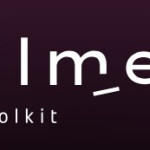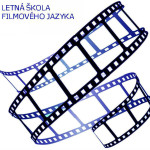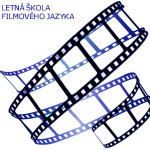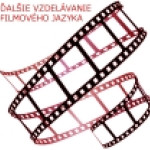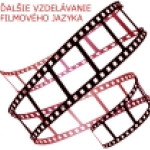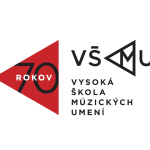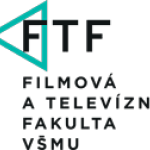
Compilation of all conference papers:
Live 360° streamed presentations from the IVGC 2023 international conference on April 21, 2023.
IVGC Bratislava 2023 - Transformations of Visual Effects and Game Design IV
IVGC is an international conference organized by the Film and Television Faculty of VŠMU every year in April, lasting 2 days. It takes place face-to-face or remotely through a video conference link using the MS Teams program, or in person or face-to-face for students concentrated in the lecture theater. The first day is dedicated to presentations by excellent graduate students, the second day is dedicated to professional teachers or professionals from practice.
This year, the IVGC took place on April 21, 2023. Next year, the IVGC will take place on April 18-19, 2024.
It is primarily intended for students of study programs of VFX and GD schools operating in the European area, but also for external amateur or professional interested parties in a domestic and international context.
The language of communication is English.
The task is to introduce the participants, create assumptions for future collaborations and inform not only the participants, but also any interested parties about the current level of VFX and GD in the European area.
In addition, the in-person option during a remote presentation is recorded directly on the presenter's computer (the open source program OBS, mp4 is recommended), then the recording is made in the TEAMS program and the conference is streamed live on the YouTube channel with 360° camera.
Subsequently, after editing, the individual video contributions are shared via the WEB pages: www.avfx.sk, www.ahd.avfx.sk and via the websites of participating foreign schools or social media. Presentations are available to the general professional public.
A supplement to the conference is the realization of an electronic written document Proceedings of the IVGC 2024, which is a written visual capture of the individual presentations of both conference days. The Proceedings also include contributions that were not heard at the videoconference presentations, but are an important insight into the professional-pedagogical environment of VFX and GD in the world.
IVGC 2023
2023 Medzinárodná konferencia VFX and HD Bratislava SK verzia 2023 International Conference VFX and GD Bratislava EN version
IVGC 2022
2022 Medzinárodná konferencia VFX and HD Bratislava SK verzia 2022 International Conference VFX and GD Bratislava EN version 2022 1.deň Medzinárodnej konferencia VFX a HD Bratislava SK verzia 2022 1st day of the International Conference VFX and GD Bratislava EN version 2022 2.deň Mezinárodnej konferencie VFX a HD Bratislava SK verzia 2022 2nd day of the International Conference VFX and GD Bratislava EN version
IVGC 2021
2021 Medzinárodná konferencia VFX and HD Bratislava SK verzia 2021 International Conference VFX and GD Bratislava EN version 2021 1.deň Medzinárodnej konferencia VFX a HD Bratislava SK verzia 2021 1st day of the International Conference VFX and GD Bratislava EN version 2021 2.deň Mezinárodnej konferencie VFX a HD Bratislava SK verzia 2021 2nd day of the International Conference VFX and GD Bratislava EN version
Estimated program of the 1st and 2nd day
MGR VFX department students presenting topics:
1. Tímea Michalčíková, Patrik Szekács: VFX in feature film.
2. Richard Černaj, Eduard Randl: Motion Capture Techniques.
Professionals presenting their topics on the 2nd day of the conference:
1. Andrea Vrábelová (Slovakia): VFX and scenography in a selected scene from the film The Maid.
2. Michal Klosinski (Poland): Designing games with utopian mindset.
3. Marcel Legindi (Czech republic): Efficiency in CGI Content Production: Strategies and Innovations.
4. Frederic Caeyers (Belgium): Comparison of VFX and GD teaching in Belgian, French and Canadian university education.
5. Sebastian Laitila (Finland): Thriving, not surviving. How to keep the game development journey going.
Estimated program
|
|
|
IVGC 2023 21.4.2023 |
10:00 |
10:15 |
Ľudovít Labík - Introduction of International VFX and GD Conference. |
10:15 |
10:45 |
Andrea Vrábelová (Slovakia): VFX and scenography in a selected scene from the film The Maid. |
10:45 |
11:15 |
Michal Klosinski (Poland): Designing games with utopian mindset. |
11:15 |
11:20 |
Refreshments. |
11:20 |
12:00 |
Tímea Michalčíková, Patrik Szekács: VFX in feature film. |
12:00 |
12:45 |
Richard Černaj, Eduard Randl: Motion Capture Techniques. |
12:45 |
12:50 |
Refreshments. |
12:50 |
13:20 |
Marcel Legindi (Czech republic): Efficiency in CGI Content Production: Strategies and Innovations. |
13:20 |
13:50 |
Frederic Caeyers (Belgia): Comparison of VFX and GD teaching in Belgian, French and Canadian university education. |
13:50 |
14:20 |
Sebastian Laitila (Finland): How to build atonal type of musical composition and diegetic rewarding. |
14:20 |
14:30 |
Ľudovít Labík - Closing remarks and evaluation of the IVGC 2023. |
BIO:
Andrea Vrábelová (Slovakia)
Teacher at the Department of Visual Effects and Game Design at the FTF VŠMU in Bratislava. During her career, she worked as an architect, scenography author, costume designer and designer in film, television and advertising projects and creative solutions in the interior and design industry. Recently, she has been working in the field of VFX management and coordination of trick production. But her main interest is in the field of creative VFX supervision, where she is dedicated to the creation of scenography in visual effects and in a digital environment. An example is the collaboration on the film "The Maid" (Slúžka), but the most recent project is the film directed by Juraj Jakubisko "Perinbaba and Two Worlds", where she worked in the position of chief architect and then also in VFX post-production as a trick artist and creative VFX supervisor.
Michał Kłosiński (Poland)
Associate professor at The Faculty of Humanities, University of Silesia, Katowice, Poland. He is a member of Utopian Studies Society and The Society for Utopian Studies. During his doctoral studies he participated in the Paris Program in Critical Theory. He published articles on Polish literature, literary theory and video games as well as four monographs in Polish, two of which center on game studies: Hermeneutics of video games. Interpretation, immersion, utopia (Warsaw 2018) and Adventures of a digital nomad. Game interpretations (Katowice 2023). His current hermeneutical and post-phenomenological research can be placed at the intersection of literary theory, game studies and utopian studies. His main interests are: critically oriented video games, literary theory and philosophy of technology. His research focuses on questions of representation, simulacra, quasi-objects and critique of capitalism based on hermeneutic lectures of games and literature. He is realizing a grant for “Mapping game biopolitics” from Polish National Science Centre and is currently the founder and head of Game Studies Research Centre in Katowice.
Marcel Legindi (Czech republic)
Ph.D. candidate at Tomas Bata University in Zlin, specializing in Computer Graphics and Automation. With a passion for streamlining the CGI creation process, Marcel currently serves as the Technical Director at bbp.studio, where he is dedicated to automating every possible technical task in the field. Boasting nearly 20 years of experience in the industry, Marcel has cultivated a diverse skill set, positioning himself as an accomplished CGI generalist. His extensive background spans various aspects of computer graphics and animation, enabling him to tackle a wide array of challenges with ingenuity and expertise. As he continues to advance both academically and professionally, Marcel remains committed to pushing the boundaries of CGI technology and further enhancing the efficiency of the creative process.
BBP Studio
Frederic Caeyers (Belgia)
Creative Designer, specialized in environmental storytelling design. Master’s in digital arts. Born in Belgium and raised by a Slovak mother who earned a master's degree in film studies at VŠMU, he has always been interested in the entertainment industry, from video games to movies to theme parks. He liked to play, watch and visit the created projects, which is why he decided to study digital arts. A background in traditional art is a requirement for studying a bachelor's degree in digital art. Therefore, he first studied visual arts at Sint-Lucas High School in Gent, Belgium. In 2016, he started his bachelor's studies at the multi-award winning startup school Howest Digital Arts & Entertainment in Kortrijk, Belgium. There he started studying 3D production and VFX and later specialized in Look Development. He became one of the handful of students who succeeded in their undergraduate studies at this college without failing a single year. In his third and final year, he was approached by Howest School with the opportunity to study abroad for six months. He accepted the adventure and moved to Annecy, France, where he studied at école Aries (now called école Brassart) and graduated in 3D Production & Animation.
After an adventure in France, he moved back to Belgium to intern at KCC Entertainment Design as a 3D/2D concept designer for themed entertainment. This was the first time he was able to focus on his passion for theme parks and design them. He has worked on projects such as Shimao Smurfs Park in Shanghai, China, Starbucks and Raising Cane’s in Jeddah, Saudi Arabia and many more.
Due to his international background and mindset, Howest Digital Arts & Entertainment offered him representation and relocation to Canada associated with his Master's studies, in the presence of a partnership between Howest Digital Arts & Entertainment and école NAD-UQAC (Université de Quebec à Chicoutimi) in Montreal, Canada. By studying Theme Park Design at NAD-UQAC, he became a pilot student of Howest Digital Art & Entertainment in Canada. He has become one of the few people in the world who research thematic entertainment. Part of this research was published in ITAPJ (International Theme & Amusement Park Journal) in South Korea, and the entire research is available in the university's digital library. He began working as a journalist reviewing movies, theme parks, and video games for multiple media outlets.
In 2020, he was approached for the position of associate artistic director of STEP (Summer Themed Entertainment Project), an international project of students and professionals from the theme park industry for students. The goal was to test skill and talent by designing an amusement park from scratch. The project was presented to experts. In the last year of his master's degree at école NAD-UQAC, he started working as a freelancer on several projects for Strickland Media (USA), P&P Projects (Netherlands) and BoldMove Nation (Belgium). These projects started with storyboards, continued with modifications to the design of amusement park attractions.
Sebastian Laitila (Finland)
University Teacher, digital communications at University of Vaasa, Ostrobothnia. Sebastian Laitila teaches workplace skills for communication students, such as Adobe software and service design in the university of Vaasa. Also he teaches the game studies module, which includes a game design course. Laitila is also an independent game developer and game musician as the company owner of Aarre Entertainment, which is releasing its first major commercial release, The Infernal Masquerade. He is the IGDA Vaasa hub co-lead and tries hard to learn to play the saxophone.
Patrik Szekács (Slovakia)
Patrik Szekács studied digital graphics at the high school of electrical engineering in Trnava, later he received a B.C. degree at AVFX FTF VŠMU. Since 2012, he has been working with digital graphics, editing photos and videos. In the film industry, he mainly works with compositing and color corrections. He cooperates with Slovak and foreign professional productions. In year In 2021, he created a website, digital materials and printed materials for the Áčko film festival, at which his author's film "Last moments before fear" won an award for VFX creation. He currently works as a compositing artist in the PFX studio.
https://www.avfx.sk/pouzivatel/szekacs-patrik
https://www.avfx.sk/02-projekty/bc-projekt-posledne-chvile-pred-strachom
Tímea Michalčíková (Slovakia)
Student of the 1st year of the AVFX master's degree at the FTF VŠMU in Bratislava.
Before that, she was engaged in advertising, graphics and photography, later she switched to 3D modeling at the bachelor's degree in AVFX FTF VŠMU. She currently works at the PFX studio as a compositing artist. She completed her bachelor's degree with the author's film "Seasons".
https://www.avfx.sk/02-cvicenia/bakalarska-praca-seasons
https://www.avfx.sk/pouzivatel/michalcikova-timea
Richard Černaj (Slovakia)
Creator of visual effects and student of the first year of the AVFX master's degree at the FTF VŠMU in Bratislava. He submitted the co-authored film "Too much" as a bachelor's thesis to the VFX department of FTF VSMU.
https://www.avfx.sk/02-cvicenia/bakalarska-praca-too-much-0
He has been working on digital graphics, photo editing and creating short CGI films for 10 years. He currently works at Studio 727 as a 3D generalist.
https://www.avfx.sk/pouzivatel/cernaj-richard
Eduard Randl (Slovakia)
He is a master's student in visual effects at the FTF VŠMU. He makes his way into the world of visual effects in 3D graphics. During his studies, he had the opportunity to intern in several studios, for example: 727 Studio and Blue Faces. He worked in several positions, such as 3D modeller, texturist, 3D scan cleaner or environmental artist. In addition to 3D graphics, he also experiments with Deepfake technology.
https://www.avfx.sk/02-projekty/2d-vfx
He likes to read, draw, watch movies, play video games and board games.
https://www.avfx.sk/pouzivatel/randl-eduard
Ludovít Labik (Slovakia): Organization of the conference, editing of the proceedings of the conference.
The head of VFX and GD FTF Department of VŠMU, Bratislava, Slovakia. He has been teaching film language at film schools in Slovakia for 37 years and at film schools in the Czech Republic for 15 years. Focuses on storytelling, visual effects and game design. Initiator of new study programs Visual Effects (2011) and Game Design (2020) at FTF VŠMU Bratislava, SR. KEGA project leader 2022-24, TOP TEAM VFX project leader 2015-2022, Slovakia, member of the TEMPUS 2014 International European Grant project, (7 universities mainly from the Balkans), member of the GLOBAL RIVERS PROJECT 2008 project (7 universities from four continents), Organization 17 years FILM SUMMER SCHOOL and 9 years of workshops/conferences WORKSHOP VFX. Author of 5 publications, the most important being DRAMATURGIA SKLADBY, 2013, CR.
 https://orcid.org/0000-0002-5539-2385
https://orcid.org/0000-0002-5539-2385
https://www.avfx.sk/en/pedagog/ludovit-labik-prof-mgr-artd
ABSTRACT
Andrea Vrábelová - VFX and scenography in a selected scene from the film The Maid.
The process of scenographic procedures and their subsequent implementation in the digital environment will be presented on the example of the creation of a selected shot in the film The Maid. In the work, there will be a focus on aspects that influence creative solutions, the cooperation of the set designer with 3D and 2D artists in the field of VFX and post-production will become closer. Some views on artistic creation in the modern environment of the digital era and new technologies are described.
Michał Kłosiński - Designing games with utopian mindset
The aim of the presentation is to sketch a set of guidelines for combining utopian philosophy with game design ideas. The paper will be strongly influenced by contemporary game studies reflection on utopias
Marcel Legindi - Efficiency in CGI Content Production: Strategies and Innovations
This paper proposes an innovative approach to generating high-quality audio-visual (AV) outputs while reducing the time and manpower typically required in the traditional one-way linear CGI pipelines. The research underpinning the thesis aims to assess the quality of AV outputs from a content creation perspective, to evaluate the effectivity of the proposed methods in the context of AV production, and to identify effective strategies for rapid prototyping through acceleration of iterative cycles by procedural approaches in the AV development process. Additionally, it provides a comprehensive comparison between linear and non-linear pipelines, highlighting their respective advantages and limitations. By addressing these key areas, this work aspires to offer valuable insights and practical solutions for improving the overall effectivity and quality of audio-visual production, ultimately benefiting both the practitioners and the industry as a whole.
Frederic Caeyers - Comparison of VFX and GD teaching in Belgian, French and Canadian university education.
Recently, education in digital arts on the bachelor level has become a widespread phenomenon and there are various degrees in both VFX and game design in many countries. As a teenager seeking to enter the entertainment world, the amount of choice can become quite overwhelming and sometimes you’re not sure what school and degree to choose. On the contrary, on a master level the choice of university is extremely limited. Alternatively as a professional looking for colleagues or employees it can be difficult to know what type of artist fresh out of university to hire. I’ve had the privilege of studying at three different universities in three different western countries. Because of this experience I’m able to distinguish what each country’s preferences are in terms of educating their digital artists. I will talk about the differences between the schools’ and countries’ mindset in educating prospecting digital artists. Furthermore I will show various projects by various students and talk about the different type of projects that get assigned as well as the different styles of teaching. On top of that I will tackle how a school’s image and presumptions can differ from the actual experience. Next I will present how my path in digital art education led me to become a themed entertainment artist and in which ways themed entertainment is linked to VFX and game design. Lastly I will conclude with the subject of themed entertainment design education and why it isn’t as represented as VFX and game design.
Sebastian Laitila - Thriving, not surviving. How to keep the game development journey going.
Being a solo indie game developer is one of the most common and also one of the most difficult ways to make games, as it requires a vast array of skills to create in a competitive environment. It is a dream that has made many people miserable, however, it does not need to be like that. The presentation is focused around battle tested methods and focus points aimed especially for solo and small teams, beginning from choosing a game engine and sufficient tools to taking care of your own well-being as a creative entrepreneur. There are no certain ways how to make a good game, except practice, but there are well-known focus points and design methods to make a game better, which we will go through.
Tímea Michalčíková, Patrik Szekács - VFX in a feature film.
A presentation on visual effects in feature films will provide insight into the key role that VFX artists play in modern filmmaking. It is based on personal experience and will deal with topics such as the importance of including VFX artists in the film crew from the very beginning of production, the use of CG assets in feature films and outline the issue of cooperation between actors and VFX. The topic is the key tools and techniques in post-production that are essential to create realistic and convincing visual effects. It also includes specific equipment that VFX artists need to work effectively on set.
Richard Černaj, Eduard Randl - Motion Capture Techniques.
The Motion capture workshop will look at the possibilities of motion capture. Different types of motion capture used in the film and video game industry will be presented. We compare the results of traditional and modern motion sensing techniques and also look at the impact of artificial intelligence in this area. We will also introduce motion and animation capture tools that are affordable for independent filmmakers, all video game, and casual enthusiasts.



